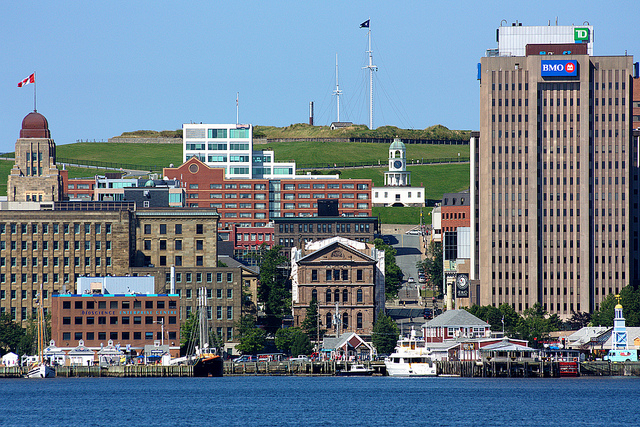If we can get past the hype and acknowledge that the new convention centre for downtown Halifax doesn’t add up in economic terms, perhaps we could then move to bigger questions about the politics that too often lead the taxpayer to the slaughterhouse.
In the way it came about — taking the word of promoters and ignoring everything else — the convention centre is not only not alone, but is a throwback to the backfired economic non-salvations of the past 50 years.
The word “vision” is thrown around a lot these days as the ingredient that we lack in Nova Scotia. The Ivany commission on the new economy used it in its rousing sermon exhorting us to get our act together.
Alas, I’d say we have too much vision — of the wrong kind. What we really lack is both feet on the ground and rational decision-making based on facts whenever taxpayer money is involved. Whenever some grand project is announced, the formula too often involves a big-money guy who shows up and says: “Do I have a deal for you. Just add public funds.”
A political decision to go ahead is made before the facts are in, the alternatives are not examined properly and the costs only show up later. The Maritime Link to Newfoundland is another of those. We’re committed to high-cost electricity, while the alternative, Quebec, is awash in cheap power because the northeast U.S. states, which we should be emulating, did the rational thing — they took Quebec electricity for decades and now are replacing it with efficiency and alternatives. Meanwhile, the only sure winner in it is Emera, the builder, and owner of the power company. The deal with Cooke Aquaculture on open-pen salmon farms is another example, to round out the recent ones.
Before that, for decades, Nova Scotia was virtually Vision Central, with grand schemes coming out of every pore — a 12-reactor nuclear complex, a world-scale steel mill, a heavy water plant, petrochemical plants, dams across the entire Bay of Fundy, etc., etc. — most of which thankfully never saw the light of day, including the more recent Commonwealth Games bid which would have cost as much as $2 billion for a couple of weeks of minor publicity in the barely existing British Commonwealth.
The convention centre, according to what seems to be the best figures, will cost $159 million to $164 million to build, with payments by HRM and the province adding up to some $400 million at the end of 25 years. Revenues, even under the best scenario of indirect benefits, will add up to barely half of that, leaving a loss of some $200 million.
And here’s the big disconnect. Defenders of the project, eager to get it going before too many questions are asked, doggedly avoid issues of taxpayer cost. Yet these supporters would be primarily from the business community — the same voices, presumably, that are heard endlessly calling on the provincial government to get leaner and smaller, and to cut budgets and taxes.
This denial has reached the point that HRM Mayor Mike Savage ignorantly defended the project on grounds that, surely, the senior levels of government had done their “due diligence.” Alas, as he should know, they did not — and the auditor general slammed them for it. Too many people in this circle have been leaning on each other’s rickety authority.
Meanwhile, HRM councillor Waye Mason, in last Saturday’s edition, made the argument that we can’t possibly cancel the project now — it would lead to, among other things, “untold reputational risk” for the city.
Interesting, in that light, that we’re now demolishing the Cogswell Interchange. The thing was meant to feed into a four-lane “Harbour Drive” along the length of the downtown waterfront to the old Nova Scotian Hotel, now the Westin.
This plan, by the car-crazy urban planners of the day, was blocked by popular protest. Historic Properties was built instead — which brought Halifax positive buzz across Canada as a progressive city for a couple of decades. The very stuff promoters of the convention centre crave, but are not going to get by copying the costly mistake of many other North American cities, which the promoters of the Harbour Drive were also doing.
In other words, “vision” can actually be the opposite of what you think it is.
The McNeil government has, I suggest, a critical decision to make. Would it be too much to ask that, assuming that the existing World Trade Centre is getting old and ratty (and someone other than the WTC managers should establish that), we demonstrate what is really needed with regard to convention facilities, then talk about what we can reasonably afford. If not, then we’re still on the old, non-visionary tax-wasting treadmill.
Ralph Surette is a freelance journalist in Yarmouth County. This article was first published in the Chronicle Herald.
Photo: Glenn Euloth/flickr



